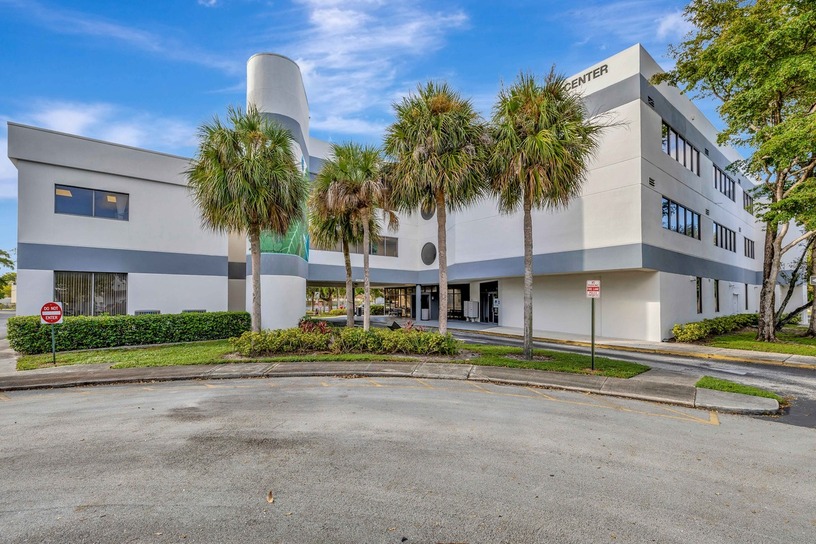The Sylvia Brafman Mental Health Center in South Florida provides evidence-based, holistic mental health treatment. Our institution boasts a dedicated team of esteemed experts at the forefront of recovery-focused mental health support. Accredited by the Joint Commission, we uphold the highest standards of healthcare excellence. Our integrative IOP and PHP mental health services encompass accommodation support in Florida .

Residential Psychiatric Treatment Facility in Fort Lauderdale, Florida
What Is Psychiatric Residential Treatment?
Residential psychiatric care serves as a crucial resource for individuals dealing with significant mental health issues, providing intensive support within a structured environment. These centers offer 24-hour care and therapeutic interventions tailored for those whose mental health challenges are severe enough to disrupt daily life or pose safety concerns.
Inpatient psychiatric care provides individuals with personalized support that addresses their unique needs. This includes psychotherapy, medication management, and skill-building activities, all focused on achieving stability and progress. Within this setting, individuals find a supportive community of peers and professionals united in the pursuit of recovery and empowerment.
However, if you’re considering alternatives to 24-hour residential inpatient care, The Sylvia Brafman Mental Health Center offers supportive lodging and assistance in finding accommodations in Florida for those enrolled in our Intensive Outpatient Program (IOP) and Partial Hospitalization Program (PHP). This approach is ideal for those seeking comprehensive mental health treatment or exploring a wellness retreat experience in the beautiful surroundings of Florida.

What is Treated in a Psychiatric Residential Treatment Facility?
Residential psychiatric facilities provide intensive mental health care for those requiring a higher level of support and supervision than what can be offered through outpatient mental health services. Psychiatric rehabilitation caters to individuals with severe mental health conditions that significantly impair daily functioning and well-being. The following are examples of conditions treated in these settings, though this list isn’t exhaustive.

Do Residential Mental Health Centers Offer Dual Diagnosis Treatment?
Some residential mental health centers, like The Sylvia Brafman Mental Health Center in South Florida, offer dual diagnosis treatment. This specialized care addresses both mental health disorders and co-occurring substance use disorders, providing a comprehensive approach to recovery. The best residential psychiatric facilities involve integrated care plans that simultaneously tackle both issues effectively.
Psychotherapy in a residential setting catering to dual diagnoses may include cognitive-behavioral therapy, medication management, and group therapy, all tailored to address the unique challenges of having a co-occurring mental health condition and a substance use disorder. These specialty centers’ continuous support and structured environment are essential for effective dual diagnosis treatment, aiding long-term recovery.
Contact us today for more information on our residential mental health care for dual diagnoses.
Long-Term Residential Psychiatric Treatment Facility in Florida
Finding a suitable long-term residential psychiatric treatment facility in Florida is crucial for effective mental health care and recovery. These behavioral health centers provide intensive, round-the-clock support in an environment conducive to healing. Understanding your options for long-term residential mental health treatment will enable you to make informed decisions regarding mental health care for yourself or a loved one.

Short-Term Residential Psychiatric Treatment Facility in Florida
When seeking short-term residential psychiatric care in Florida, it’s essential to find psychiatric hospitals or treatment centers offering practical support within a condensed timeframe. These facilities provide intensive care for individuals in need of psychiatric crisis intervention or emergency services, offering a structured environment conducive to rapid stabilization. Below are examples of short-term residential mental health treatment at varying durations.

How to Find Residential Psychiatric Facilities in Florida
Finding residential psychiatric facilities in Florida shouldn’t be challenging, which is why we’ve provided a step-by-step guide to assist you. South Florida cities like Miami, Fort Lauderdale, and West Palm Beach are home to several avenues to explore. One esteemed option is The Sylvia Brafman Mental Health Center.
Accredited and renowned for our commitment to evidence-based care, we’re located at 7710 NW 71st Ct, Tamarac, Florida, 33321. We offer a comprehensive mental health treatment services in FLorida with separate accommodation options for men and women. You can call 877-958-9212 to inquire about our highly revered Fort Lauderdale mental health retreat.
Finding residential psychiatric facilities in Florida should be a seamless process, and we have a step-by-step guide to assist you. South Florida offers a wealth of options in cities such as Miami, Fort Lauderdale, and West Palm Beach. Among these, the Sylvia Brafman Mental Health Center stands out as a highly esteemed choice.
Accredited and recognized for our dedication to evidence-based care, we are conveniently located at 7710 NW 71st Ct, Tamarac, Florida, 33321. Our comprehensive mental health treatment programs cater to both men and women with separate accommodation options. For those interested in our well-regarded Fort Lauderdale mental health retreat, please call 877-958-9212.
While we do not offer 24-hour residential care, we provide supportive lodging and assist you in finding a place to stay in Florida. This service is available for participants in our Intensive Outpatient Program (IOP) and Partial Hospitalization Program (PHP). This approach serves as an excellent alternative to traditional residential inpatient care, perfect for individuals seeking mental health treatment or a wellness retreat experience in Florida’s inviting environment.
If you’re seeking 24-hour inpatient psychiatric care, consider the following suggestions below:

Are you ready to take the first step towards better mental health? At The Sylvia Brafman Mental Health Treatment Center in Fort Lauderdale, Florida, our team of dedicated professionals is ready to guide you. We offer a variety of therapy programs and rehab treatments, each uniquely designed to meet your needs. Our success stories speak volumes about our expertise and dedication. So don’t wait, reach out to us today! Either give us a call or fill out the form below to request a callback.
"*" indicates required fields

Does Insurance Cover Psychiatric Residential Programs?
Navigating insurance coverage for psychiatric residential mental health treatment and programs can be complex, but many insurance plans offer some level of coverage for these services. It’s essential to contact your insurance provider directly or call 877-958-9212 to understand your coverage details, including any limitations or requirements.
Remember to advocate for yourself and ask questions to ensure you understand your coverage and financial responsibilities before beginning treatment. When exploring insurance options for inpatient psychiatric care, it’s helpful to inquire about in-network providers and potential out-of-pocket expenses. You’re encouraged to contact us, as our helpful patient advocates can guide and assist in navigating insurance matters. We can also conduct a free assessment to determine the most suitable level of care and treatment duration for your unique needs.

What Happens at a Psychiatric Treatment Facility?
At a psychiatric treatment facility, you’ll receive comprehensive care for mental health and substance use concerns in a structured, supportive environment. Upon arrival, a thorough assessment is conducted to create a personalized treatment plan that addresses your specific needs. This plan typically includes individual therapy, group therapy, medication management, and various therapeutic activities to promote mental wellness and recovery.
You’ll actively participate in these treatment modalities throughout your stay, engaging in therapy sessions that help you understand and manage your condition. The facility provides continuous monitoring and support, ensuring that any necessary adjustments to your treatment plan are made promptly. The goal is to equip you with the skills and strategies needed to achieve lasting mental health and to support your transition back to daily life or continued treatment after your inpatient stay.




